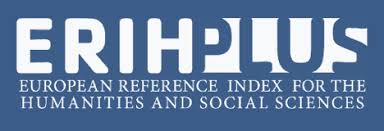№1, 2023
The world is fast changing with immersive technology applications. In the next few years we will be seeing many new applications with Artificial Intelligence from big names, such as Google, Facebook, Amazon, Microsoft, Oracle and most recently Oracle with their cloud services. Fantasy has lured the educational environment to adopt augmented and virtual reality applications into the teaching and learning ecosystems. Today's technology has enabled us to work more effectively with learners in everyday, everyday settings and at school and helps us cultivate a collaborative learning environment, enabling us to develop and maintain the technology that the public wants, and that which can work on a community level. Springing up in the evolution, the pandemic has affected the quick implementation of digital technologies to be used for communication, sharing of data across the digital space, reaching unimaginably across all the nooks and corners of the world. In doing so, it has also allowed for the establishment of a world where the need for a single, decentralized 'platform' can be harnessed to promote social and economic growth and productivity. The content or data applications enhance the delivery capacity and understanding capability appropriately, to the specific process that is unique to the domain. The digital technologies available for our connected cities will accelerate the adoption and development of this emerging digital economy. There are more software and intelligence networked applications such as Simulations, and Big data which are systemic integrated through cloud computing, with appropriate cyber security, and comfortably assured with the 5G mobile telephony networks, propositioning accessibility, prompt delivery at and low cost and latency in connection. Thus, this industry 4.0 ages prompts to promote visualization, personalization, gamification and problem solving that are the essence in the changing pedagogy for a 24x7 erudite. The future is going to mean more growth and innovation. The past is no more over, but creates a vision which has in store something positive in the future, and hope of ever succeeding. This review paper covers the post-COVID changes involving a radical change in education across the world that impacted by Industry 4.0 (pp.26-31).
- Klaus, Desmet, Avner, Greif, Stephen L. Parente (2017). Spatial Competition, Innovation and Institutions: The Industrial Revolution and the Great Divergence, 1 – 48. https://economics.sas.upenn.edu/sites/default/files/filevault/u483/desmet-grief-parente-G.pdf
- Hallward-Driemeier, Mary, Gaurav, Nayyar. (2018). Trouble in the Making? The Future of Manufacturing-Led Development. Washington, DC: World Bank. doi:10.1596/978-1-4648-1174-6. License: Creative Commons Attribution CC BY 3.0 IGO.
- Nachit, Hicham, Belhcen, Lahcen. (2020). Digital Transformation in Times of COVID-19 Pandemic: The Case of Morocco. SSRN Electronic Journal. 10.2139/ssrn.3645084. pp.17.
- Umachandran, K., (2022a). Industry 4.0 – Overview, Research Gate, DOI:10.13140/RG.2.2.22379.41765.
- Mahendra, Dev S., Rajeswari, Sengupta. (2020). Covid-19: Impact on the Indian Economy, Indira Gandhi Institute of Development Research, Mumbai April 2020.
- Sri, Idayatun. (2020). Teaching and Learning in Industrial Era 4.0, 5(2), Language Teaching and Research 2(1) (December 22, 2018), http://ejournal.unp.ac.id/index.php/eltar/article/ view/102675.
- Brian, Whalley, Dere,k France, Julian, Park, Alice Mauchline, Katharine Welsh. (2021). Towards flexible personalized learning and the future educational system in the fourth industrial revolution in the wake of Covid-19, 79-99, Higher Education Pedagogies 6(1) Taylor Francis Online. https://www.tandfonline.com/doi/full/10.1080/23752696.2021.1883458.
- Omeh, Christian Basil., Olelewe, Chijioke Jonathan. (2021). Assessing the Effectiveness of Innovative Pedagogy and Lecture Method on Students Academic Achievement and Retention in Computer Programming. Education Research International, Published by Hindawi, 11. DOI: 10.1155/2021/5611033
- Ajit, Singh. (2019). Education System & Emerging Technologies, Psychology Research, David Publishing, 9(12), 497-503. doi:10.17265/2159-5542/2019.12.002
- (2018). Innovation and creativity, Developing the Cambridge learner attributes, in Chapter 4. https://www.cambridgeinternational.org/Images/426483-chapter-4-innovation-and-creativity.pdf
- World Bank. (2022), Remote Learning During COVID-19: Lessons from Today, Principles for Tomorrow, https://www.worldbank.org/en/topic/edutech/brief/how-countries-are-using-edtech-to-support-remote-learning-during-the-covid-19-pandemic
- OCED. (2018), Preparing our youth for an inclusive and sustainable world The OECD PISA global competence framework, 1-33.
- Sudarshan, Srinivas, Krishna, Moorthy, Aarthi, Thiru, Sukant, Khurana. (2018). Personalized learning through artificial intelligence, https://medium.com/swlh/personalized-learning-through-artificial-intelligence-b01051d07494.
- Steve, Penfold. (2022). 3 Simple ways to gamify your online learning, https://www.docebo.com/learning-network/blog/gamify-online-learning/
- Brown University. (2022). Teaching Problem Solving, The Harriet W. Sheridan Center for Teaching and Learning, https://www.brown.edu/sheridan/teaching-learning-resources/teaching-resources/classroom-practices/teaching-problem-solving.
- Umachandran, K. (2022b). Industry 4.0 Pedagogy, Research Gate, DOI:10.13140/RG.2.2.10654.00325.
- (2020). Education in a post-COVID world: Nine ideas for public action. Paris, UNESCO, International Commission on the Futures of Education, 1 - 26.
- (2020). Digital Transformation in the Age of COVID-19: Building Resilience and Bridging Divides, Digital Economy Outlook 2020 Supplement, OECD, Paris, 110. www.oecd.org/digital/digital-economy-outlook-covid.pdf
- Lewis, Tremlett. (1997). An investigation of lifelong learning in the context of traditional educational policy and practice, Department of theory and policy studies in education, Ontario institute for studies in education of the University of Toronto, 1-401.
- Emily, J. Klein. (2008). Learning, Unlearning, and Relearning: Lessons from One School’s Approach to Creating and Sustaining Learning Communities, Teacher Education Quarterly, 1-19.
- WEF, (2020), The COVID-19 pandemic has changed education forever. This is how, https://www.weforum.org/agenda/2020/04/coronavirus-education-global-covid19-online-digital-learning/
- (2020). Strengthening online learning when schools are closed: The role of families and teachers in supporting students during the COVID-19 crisis, 1-14.
- (2016). Future Ready Learning Reimagining the Role of Technology in Education 2016, National education technology plan, US Department of education.





.jpg)









